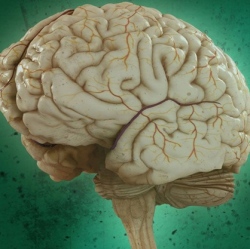
Scientists in California say they have transformed understanding of Parkinson’s disease. Their experimentssuggest the brain disorder may be caused by bacteria living in the gut. The findings could lead to new ways of treating the disease, such as drugs to kill gut bugs or probiotics. Experts said the results opened an "exciting new avenue of study".
In Parkinson’s disease the brain is progressively damaged, leading to patients experiencing a tremor and difficulty moving. Researchers used mice genetically programmed to develop Parkinson’s as they produced very high levels of the protein alpha-synuclein, which is associated with damage in the brains of Parkinson’s patients.
But only those animals with bacteria in their stomachs developed symptoms. Sterile mice remained healthy. Further tests showed transplanting bacteria from Parkinson’s patients to mice led to more symptoms than bacteria taken from healthy people.
Dr Timothy Sampson, one of the researchers at the California Institute of Technology, said: "This was the ‘eureka’ moment, the mice were genetically identical, the only difference was the presence or absence of gut microbiota.
"Now we were quite confident that gut bacteria regulate, and are even required for, the symptoms of Parkinson’s disease."
The scientists believe the bacteria are releasing chemicals that over-activate parts of the brain, leading to damage. The bacteria can break down fibre into short-chain fatty acids. It is thought an imbalance in these chemicals triggers the immune cells in the brain to cause damage.
r Sarkis Mazmanian said: "We have discovered for the first time a biological link between the gut microbiome and Parkinson’s disease.
"More generally, this research reveals that a neurodegenerative disease may have its origins in the gut and not only in the brain as had been previously thought.
"The discovery that changes in the microbiome may be involved in Parkinson’s disease is a paradigm shift and opens entirely new possibilities for treating patients."
While the findings need to be confirmed in people, but the researchers hope that drugs that work in the digestive system or even probiotics may become new therapies for the disease.
The trillions of bacteria that live in the gut are hugely important to health, so wiping them out completely is not an option.
Dr Arthur Roach, from the charity Parkinson’s UK, said: "In recent years, evidence has been growing that Parkinson’s may begin in the gut, but the chain of events involved has so far remained a mystery.
"This work opens an exciting new avenue of study on the gut-brain connection in Parkinson’s.
"There are still many questions to answer, but we hope this will trigger more research that will ultimately revolutionise treatment options for Parkinson’s."
